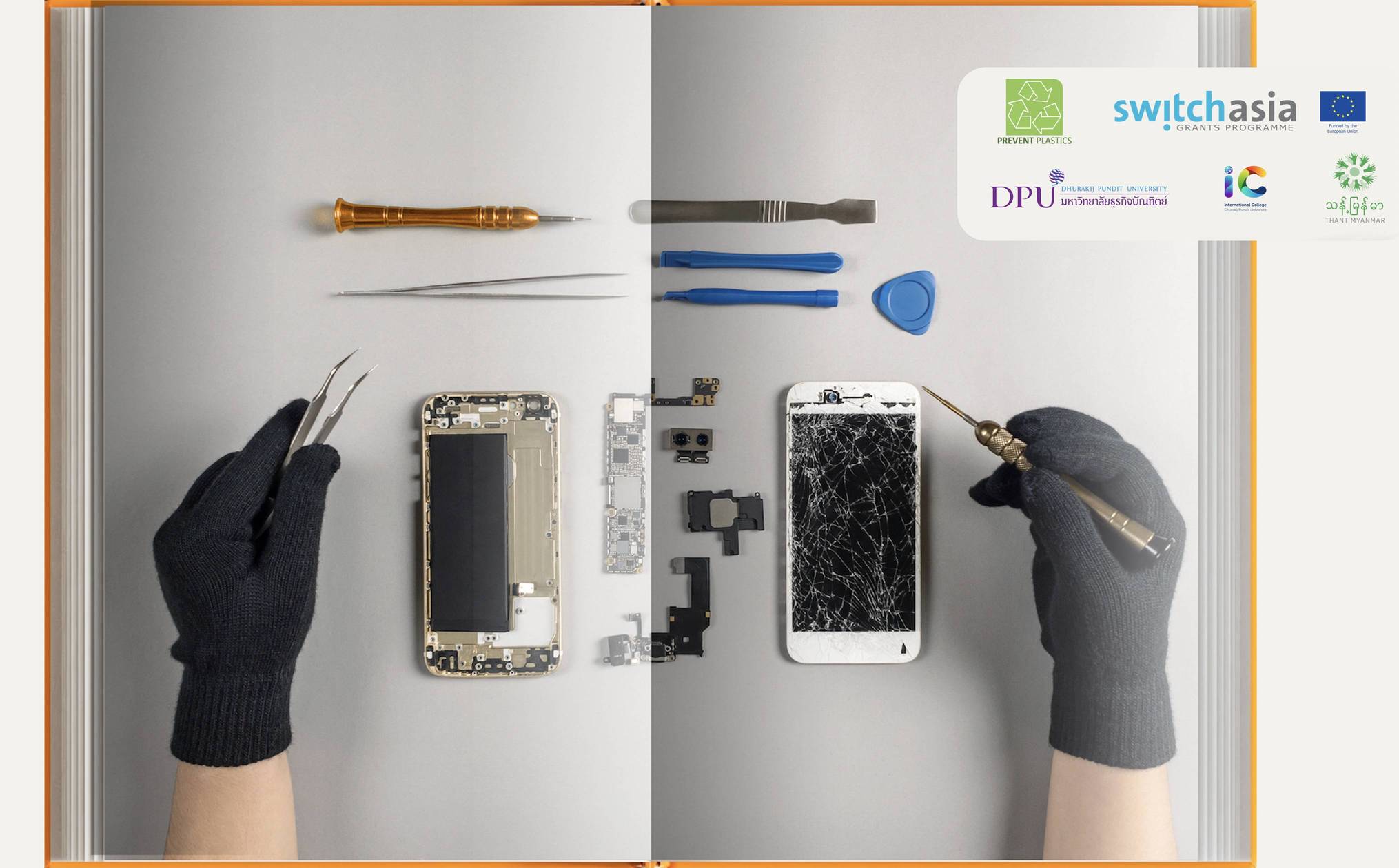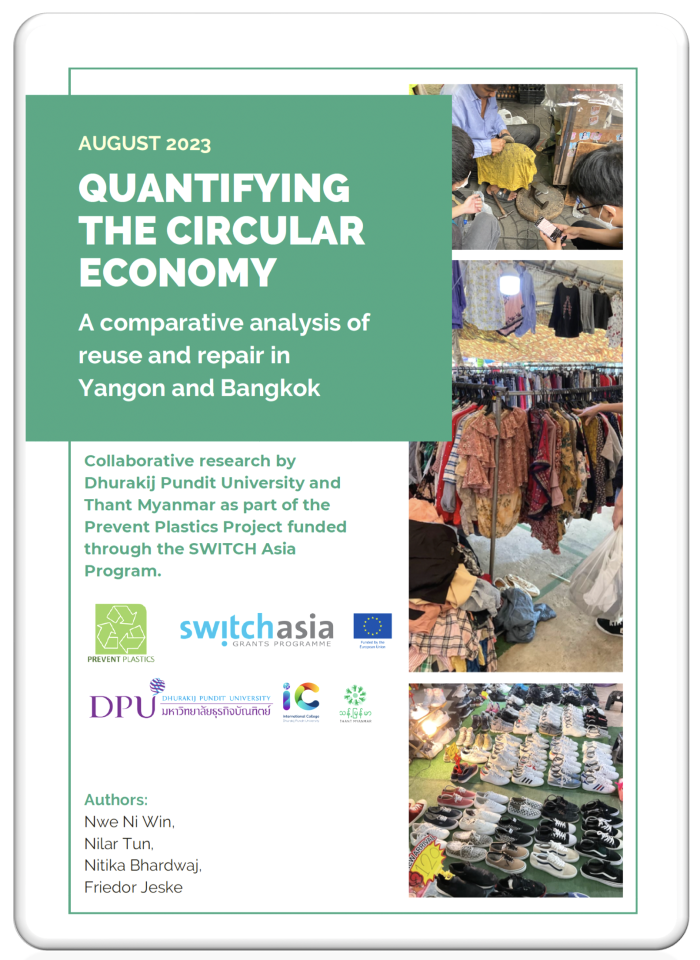
The concept of the circular economy has gained global attention as an avenue for pursuing sustainability and eco-friendly practices. While much has been said about this movement, an often-overlooked but vital aspect is the pivotal role played by the repair and reuse culture in fostering a circular economy. This publication delves into the deep-rooted traditions of repair and reuse in Myanmar and Thailand, illuminating their significant contributions to sustainability and resource preservation.
Myanmar's Repair and Reuse Tradition
Myanmar, a country with limited access to resources and technology, boasts a longstanding tradition of repair and reuse. Born out of necessity, this culture has become an integral part of daily life for its citizens. Despite the march of modernization, countless repair shops across the nation skillfully mend a wide array of items, from footwear and bags to clothing, furniture, and electronics.
What distinguishes Myanmar's repair culture is its sustainability. Items are expertly repaired multiple times, significantly extending their lifespans beyond what is typical in more consumer-driven societies. This approach conserves valuable resources, economizes individuals' finances, and preserves cherished possessions.
Furthermore, Myanmar's reuse culture thrives as well. Used products often pass down through generations, and families frequently donate items they no longer require to those in need. This practice not only minimizes waste but also fosters a strong sense of community and solidarity.
Similar Practices Thriving in Thailand
Just across the border in Thailand, a comparable commitment to reuse and repair is evident. Thai people have wholeheartedly embraced these practices to reduce waste and their environmental footprint. Bangkok, the bustling capital city, is home to numerous repair shops and second-hand markets where individuals can buy, sell, and exchange used items.
 A Comparative Analysis between Yangon and Bangkok
A Comparative Analysis between Yangon and Bangkok
To delve deeper into the impact of repair and reuse cultures on the circular economy, Dhurakij Pundit University and Thant Myanmar embarked on a collaborative research project. This initiative, a part of the EU SWITCH-Asia Programme-funded Prevent Plastics Project, sought to quantify the circular economy's influence in Yangon and Bangkok.
This research zeroes in on the pivotal roles played by repair and reuse cultures in both cities. The data unequivocally showcases how these practices substantially reduce waste, diminish resource consumption, and promote a more sustainable way of life.
Repair and Reuse: Cornerstones of the Circular Economy
Repair and reuse cultures are invaluable components in shaping a circular economy. Myanmar and Thailand's longstanding traditions of mending and repurposing items not only serve to safeguard the environment but also advocate for frugality, community support, and sustainability. In an era grappling with environmental challenges, these cultural practices offer valuable lessons, underscoring that the circular economy is not just an abstract concept but a way of life that has been successfully practiced for generations.
For an in-depth exploration of this topic, download: Quantifying the Circular Economy: A Comparative Analysis of Reuse and Repair in Yangon and Bangkok


